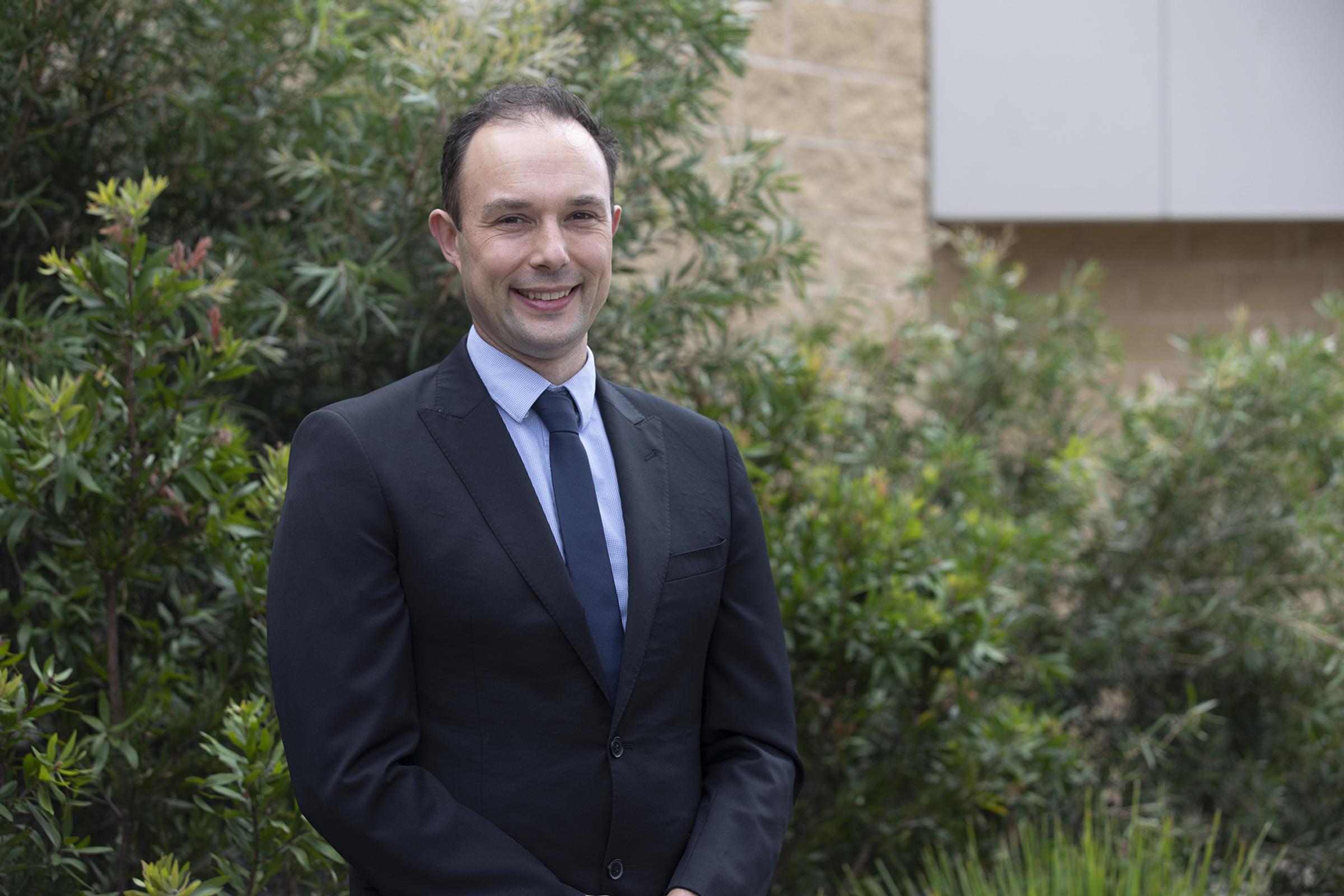Principal's Report

Welcome to Term One 2022
All students are active participants in a learning culture that promotes academic excellence and personal development through a diversity of challenging experiences.
VISION
“Working together, learning together” – Working together to enable all students to achieve their potential and become confident, effective learners who contribute productively to society.
ACKNOWLEDGEMENT OF COUNTRY
Doncaster Secondary College acknowledges the traditional owners of the land on which our school is situated, the Wurundjeri Woiwurrung people of the Kulin Nation. We pay our respects to elder's past, present and emerging and extend that respect to any and all Aboriginal or Torres Strait Islander people. We value the ongoing contribution to the cultural heritage that the Wurundjeri Woiwurrung people provide to our school as well as the city of Manningham. We recognise that this land was never ceded and there is no treaty, and we commit to efforts towards reconciliation as a school community. We at Doncaster Secondary College are inclusive of individuals from all backgrounds including the LGBTQIA+, culturally and linguistically diverse as well as Aboriginal and Torres Strait Islander people
To our Doncaster Secondary College community, I would like to thank you for all of your support in transitioning back to onsite learning. Our community has continued to be adaptable in their response to DET directives, as well as finding ways to keep our families in isolation connected to the learning and wellbeing programs. Whilst we, and the school system are still facing challenges with COVID related isolation and staffing, our new mini-school structure has allowed us to focus on the DET priorities of Attendance, Wellbeing, Learning and Re-Engagement.
The transition to onsite learning has also come with a renewed focus on setting up systems within our mini-schools to promote student attendance and reduce absenteeism. The importance of attending school every day, unless unwell, is the single most important part of your child’s education. There is no safe number of days as students learn new things at school every day. In addition to the important skills and knowledge, school also develops social and emotional skills such as good communication, resilience and teamwork. In the long term, research shows that students who attend school every day and complete year 12 have better health, better job opportunities and higher income across their lives. For this reason we are focusing on significantly reducing our 20+ days absence through promoting positive attendance, setting and communicating high expectations, and providing support to address the barriers to school attendance. There is significant support provided to our students and families by all staff however, we have dedicated resources within our mini-schools and the wellbeing team. Our whole school approach to wellbeing ensures that our community Notices when others may be struggling, Inquires to communicate care, and Plans to provide support and further referrals as needed. I am incredibly proud that we have created an environment where students and families are also being proactive in seeking support.
Wellbeing is linked to improved academic achievement, enhanced mental health and responsible life choices
Our School Strategic Plan 2022-2025, and Annual Implementation Plan 2022 has seen the introduction of staff working in teams within Professional Learning Communities (PLCs). The PLCs are aligned with each mini-school, with groups of teachers working collaboratively to learn and plan together to meet the needs of their students. Students learn more when their teachers learn together, and developing this collaborative culture, focusing on scrutinising student achievement data, is a proven way for schools to maximise student learning growth. This approach has positive implications for student learning, attendance, wellbeing and engagement.
I would also like to highlight the importance of re-establishing boundaries and expectations at home, at school and in the community. We use our values as a framework to discuss this with our students, and I encourage you to have conversations about your family values and how they apply in different contexts. This boundary setting is an important part of establishing a safe, supportive and inclusive environment, where all students and community members can thrive. One of the boundaries which has been challenging upon the return to school is the use of mobile phones. Whilst we acknowledge that we live in a technology-rich world where mobile phones are an important communication tool. Research has found that mobile phones can be disruptive in classrooms and open to misuse at school. The unregulated presence of mobile phones in classrooms can undermine students’ capacity to think, learn, remember, pay attention and regulate emotion. This policy aims to reaffirm the school’s intention to focus on face-to-face learning and interactions maximising personal growth opportunities.
Please take some time to read through the MOBILE-PHONE-POLICY.pdf (doncastersc.vic.edu.au) with your child, highlighting that unless an exemption or exception has been provided, mobile phones must be switched off and stored securely in their respective lockers during school hours (8:30am – 3:30pm).
In light of recent events in Ukraine, the flooding in Queensland and NSW and the lingering impact of the COVID-19 pandemic, it is important to acknowledge that at this is a difficult time for many, who may have loved ones impacted by events outside their control. Our school community is particularly saddened by the war in the Ukraine and indeed all conflict around the world as this impacts on all of us and our sense of wellbeing. Our thoughts are with those in our community who are finding this time particularly difficult. Such events may cause emotions linked to past events and circumstances outside our control to be heightened. It is understandable that families will want to reach out to seek support regarding these difficult and concerning situations. As mentioned previously, we have an incredibly supportive wellbeing team at the College to care for our community. However, there are also a range of agencies offering support and assistance including:
- Kids Help Line
- www.kidshelp.com.au
- Info line: 1800 551 800
- Beyond Blue
- www.beyongblue.org.au
- Info line: 1300 224 636
- Headspace
- www.headspace.org.au
- Info line: 1800 650 890
- Lifeline
- 131 114
As announced last week, our College newsletter will now shift to a twice-a-term publication. We are currently reviewing our digital communications so that they best serve our students and parents.
I would like to thank parents who have taken time to complete the DSC Digital Communications survey. Your feedback has been incredibly valuable.
If you are yet to have your say, please complete the survey in the link below. It should take less than 10 minutes to complete and your input will greatly assist us in developing our communication strategies.
https://www.surveymonkey.com/r/95DK2YW
Student feedback is equally important and in the coming weeks, we will ask our students for their input too.
Glenn Morris
Principal
